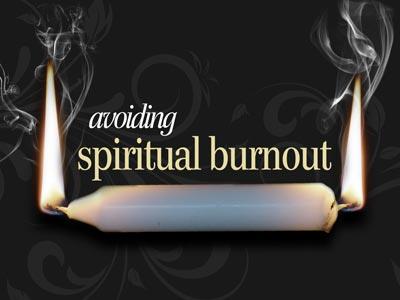-
Freedom From The Pain Of Regret
Contributed by Derrick Tuper on Nov 28, 2017 (message contributor)
Summary: Have you ever done anything you’ve regretted? I believe there’s no pain like the pain of regret. However, we can actually gain freedom from our regrets and move on.
FREEDOM FROM THE PAIN OF REGRET
INTRODUCTION: Have you ever done anything you’ve regretted? If you’ve ever said, “if only…” or if you’ve spent time in the land of, “woulda, coulda, shoulda” then you probably have regrets. I believe there’s no pain like the pain of regret. (secretregrets.com, book-what if you had a second chance?) The world is full of the pain of regret but we can actually gain freedom from our regrets and move on.
1) What do we regret the most?
• We regret what we say. Matt. 12:36, “But I tell you that men will have to give an account on the day of judgment for every careless word they have spoken.” Ever put your foot in your mouth? Ever say something you wish you could’ve grabbed out of the air and stuffed it back into your mouth before it reached the listener’s ears? We often say stupid things. The ‘open mouth-insert foot’ stuff. Like when you ask a woman when she’s due and she says she’s not pregnant. The pain of those moments is usually gone quickly but there are other times when our words are not so easily forgotten by others. Especially when we’re angry or hurt. We get into an argument and say things we regret later. Quote, “Speak when you are angry and you will make the best speech you will ever regret”. Sometimes we can mend the wounds but there are times when the wounds we cut with our words are too deep. Wounds that time doesn’t heal. Proverbs 12:18a, “Reckless words pierce like a sword.” We often deal with the pain of regret from what we’ve said to others.
• We regret what we do. Sometimes we make decisions based on how we feel. Sometimes we make decisions on the spur of the moment. Sometimes we make decisions out of our selfishness. And sometimes those choices come back to haunt us. Matt. 27:1-5 (set-up). Dr. Anne Catherine Speckard, of the University of Minnesota, reports the following long-term consequences of abortion: 81% reported preoccupation with the aborted child. 73% reported flashbacks of the abortion experience. 54% recalled nightmares related to the abortion. 23% reported hallucinations related to the abortion. One study showed they are more likely to attempt suicide than other women; in other research, psychiatrists reported negative psychological manifestations in 55% of women who had undergone abortions; and in another study, "even those women who were strongly supportive of the right to abort reacted to their own abortions with regret, anger, embarrassment, fear of disapproval, and even shame. Many of our regrettable decisions are irreversible. We have to live with the fallout from those poor choices and that leads to much regret.
• We regret what we don’t do. As part of a commencement address former First Lady Barbara Bush said the following to a group of graduating college students: "As important as your obligations as a doctor, lawyer, or business leader will be, you are a human being first, and those human connections - with spouses, with children, with friends - are the most important investments you will ever make. At the end of your life, you will never regret not having passed one more test, not winning one more verdict, or not closing one more deal. You will regret time not spent with a husband, a child, a friend, or a parent. Our success as a society depends not on what happens in the White House but on what happens inside your house." No one at the end of their life will say, “Gee, I wish I would’ve spent less time with my family and more time at work.” When we put off telling someone how much we care about them and they die we regret it. When we need to make amends with someone and we put it off and they pass away we deal with the pain of regret. When we know there’s something we know we should do and we put it off until it’s too late we regret that also. In early 1874 an inventor named Elisha Gray transmitted a few musical notes over a telegraph wire. He thought to himself, "If I can send music, perhaps I could send the human voice." The NEW YORK TIMES reported predictions of a "talking telegraph", and the public began to grow eager for it. Just one-year later Gray believed he had the answer. Tin can like voice chambers connected by a wire in a liquid that could turn vibrations into signals is what came into his mind. However, he did not put his idea on paper for two months. After finally making a sketch, he waited four more days before he went to the patent office. When he arrived, Mr. Gray was told that just two hours earlier a school teacher had come through that same door with his own sketch and had already applied for the patent. His name was Alexander Graham Bell. When you compared the sketches, the voice chambers, the wire, and the liquid everything was identical. The reason we know the name Alexander Graham Bell and until today, never heard the name Elisha Gray is simply because one man seized the opportunity when he could. The other one waited until it was too late. We regret not seizing the moment. Procrastination can produce regret. Especially if that procrastination is in your response to the gospel. Your delay, your procrastination in recognizing Jesus as Savior and Lord may someday result in an eternity of regret. Phil. 2:8-11. The NAS says, “will”. Every knee will bow and every tongue will confess. Think about that. Can you imagine the pain of regret when the day of judgment comes and you realize that when you blew off those people who told you that salvation came through Jesus you now realize that they were right; but there’s nothing you can do about it-it’s too late. Talk about the pain of regret. The eternal regret from not recognizing Jesus as Lord until it’s too late. Jesus said in hell there will be weeping and gnashing of teeth. I believe one of those reasons is the pain of regret. Think about it. We are plagued now by the things we wish we would’ve done differently. Imagine spending eternity in hell’s torment being constantly reminded of the times you could’ve and should’ve responded to the call to salvation and didn’t. You put it off. “Someday, maybe.” Then someday never came. Your life was cut short. You had the opportunities but you didn’t take advantage of them. Now, you have eternity to regret your decision. Erwin Lutzer said, "Hell is the place of unquenchable, raging, unmet emotional needs, without painkillers or sedation. Hell is a place of eternal regret."

 Sermon Central
Sermon Central



